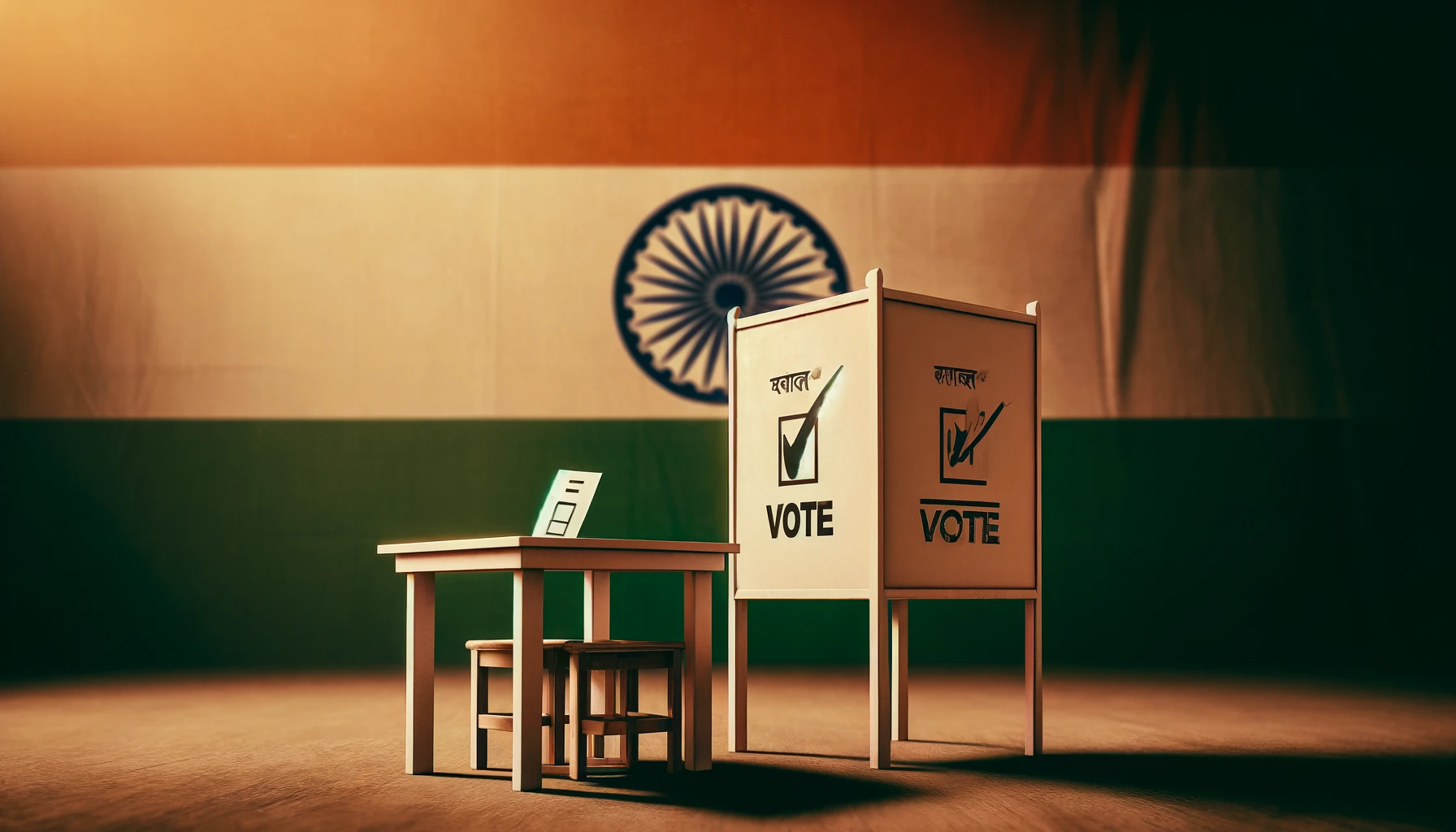
In the heart of democratic integrity lies the quandary of election funding, a topic that has perennially sparked debate and discussion. The recent conclusion of hearings by a Constitution Bench, led by the Chief Justice of India, on the legitimacy of electoral bonds, has reignited the discourse on the transparency of election financing. The crux of these discussions orbits around the position of voter’s right to know against the confidentiality of donors, underscoring a broader concern for transparent electoral funding. Amidst this backdrop, the proposition of state or public funding of elections surfaces anew as a potential harbinger of transparency and fairness in the electoral process.
Relevancy for UPSC Aspirants
Understanding State Funding of Elections
About State Funding:
- State funding of elections is a mechanism where the government provides financial aid to political parties and candidates.
- The purpose is to enable their effective participation in elections by reducing their reliance on private donations.
- This system helps to curtail the influence of wealthy donors and vested interests on political campaigns.
Objectives of State Funding:
- To increase transparency in the financing of political campaigns.
- To ensure fairness and equal opportunities for all electoral contestants.
- To promote a democratic process that is less influenced by financial disparity among candidates and parties.
Types of State Funding:
- Direct Funding: Direct monetary assistance from the government to support various aspects of election campaigning.
- Indirect Funding: Includes benefits such as:
- Subsidized or free media access to reach wider audiences.
- Tax advantages that provide financial relief.
- Complimentary use of public spaces for campaign activities.
- Provisions for essential services such as utilities, travel, transport, and security.
Current Status in India:
- Existing measures include allocating free airtime on public broadcasters for national parties during general elections and state parties during state legislature elections.
- Additional benefits for national parties include provisions for security, office space, and utilities at subsidized rates.
- Registered political parties enjoy exemptions from paying income tax as per Section 13A of the Income Tax Act, further supporting their campaigning efforts without financial strain.
Why State Funding Debate is Crucial for Electoral Transparency
State funding could help create a more equitable environment for all political entities, reinforcing democracy against the influence of opaque funding. This debate is timely, emerging amid calls for more accountable and transparent electoral practices. It addresses the urgent need for greater transparency, fairness, and trust in the electoral process, which are crucial for sustaining a healthy democracy.
The Imperative for Transparency in Election Funding
Exploring State Funding Solutions:
- Direct and Indirect Funding: Various forms of state funding, both direct (financial support) and indirect (benefits like free airtime and tax exemptions), have been explored to minimize dependence on private donations, which often carry implicit obligations.
- Current Measures in Place: These include providing free airtime on public broadcasters for political parties and offering tax exemptions. These measures are steps towards reducing private donation dependency and enhancing electoral fairness.
Objective and Ongoing Challenges:
- Objective: The primary goal is to enhance fairness and equality in electoral participation through these funding measures.
- Challenges: Despite these efforts, the quest for a fully transparent election funding system continues, highlighting the need for further effective solutions in maintaining the robustness of democratic elections.
A Panacea for Electoral Equity?
State funding of elections emerges as a promising strategy to level the playing field for all political entities, irrespective of their financial muscle. By allocating public funds to political campaigns, the influence of wealthy donors could be curtailed, fostering a democracy that thrives on ideas rather than financial prowess. The Indrajit Gupta Committee and the Law Commission of India have advocated for such measures, emphasizing the need for a fair and equitable political arena. This approach not only aims to democratize political participation but also seeks to instill a sense of collective ownership of the democratic process among citizens.
- Aim: Reducing private donor influence.
- Endorsement: Supported by various commissions.
- Benefit: Promotes equitable political competition.
Insights from Various Commissions:
- Indrajit Gupta Committee (1998): Supported state funding to level the playing field, especially for financially weaker parties.
- Law Commission of India (1999): Advocated total state funding contingent on parties not accepting other funds, stressing the need for regulatory frameworks.
- Second Administrative Reforms Commission (2008): Recommended partial state funding to limit unethical election funding.
- National Commission to Review the Working of the Constitution (2001): Highlighted the importance of establishing robust party regulations before implementing state funding, ultimately not endorsing state funding without these prerequisites.
Arguments For and Against State-Funded Elections
Advocates of state funding argue that it would curtail the undue influence of wealthy donors, leading to a more balanced and equitable electoral contest. This approach promises to democratise the funding landscape by allowing candidates from diverse backgrounds to compete on more equal footing.
Pros of State-Funded Elections:
- Reduction in Wealthy Donor Influence: By limiting private donations, state funding reduces the sway that wealthy individuals and corporations can hold over political processes.
- Promotion of Equity: Ensures that all candidates have sufficient resources to campaign effectively, thereby supporting a more equitable electoral environment.
Cons of State-Funded Elections:
- Taxpayer Burden: Implementing state funding involves using public money, which places a financial burden on taxpayers.
- Potential for Fund Misuse: There is a risk that these funds could be misappropriated, leading to misuse instead of serving the intended purpose of clean and fair elections.
Proposed Way Forward for Electoral Funding Reform
Comprehensive Legal Reforms:
- Enact and enforce comprehensive legal reforms to regulate political party finances, election expenditures, and funding sources.
- Revise or introduce legislation to close loopholes and strengthen existing laws.
Encouraging Consensus:
- Foster cross-party consensus on the necessity for electoral funding reforms.
Transparency in Political Party Funding:
- Mandate political parties to disclose all funding sources, including donor details and amounts received.
- Ensure public accessibility and regular updating of this information.
- Impose an upper limit on donations to curb the influence of large corporate contributions.
Independent Electoral Oversight:
- Empower independent electoral oversight bodies, such as the Election Commission of India, with increased resources and autonomy.
- Strengthen their role in monitoring and enforcing compliance with campaign finance laws.
Auditing and Accountability:
- Establish a robust auditing mechanism to scrutinize political parties’ financial accounts, including income, expenses, and legal compliance.
- Implement whistleblower protections to encourage reporting of illicit funding practices.
- Utilize technology like blockchain for transparent, immutable financial record-keeping.
Learning from Best Practices:
- Study and adopt international best practices in campaign financing and electoral transparency.
- Establish a regular review mechanism to adapt regulations to emerging challenges.
- Conduct public awareness campaigns to educate citizens about the importance of transparent electoral funding.
Conclusion
By making electoral funding transparent in India, the country can strengthen its democratic institutions. This means being clear about where political parties get their money from and how they spend it during elections. When this happens, citizens can feel more confident that their voting decisions are based on principles and beliefs, not just on who has the most money.


